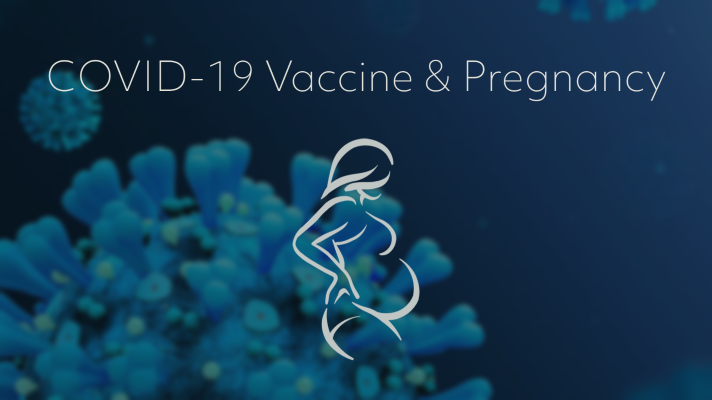The year 2020 and the COVID-19 pandemic have brought many complications and much devastation to our world. The way in which medical facilities operate has changed drastically, understandably causing some uncertainty when it comes to thoughts of conceiving and carrying a pregnancy to term.
With the recent release of the COVID-19 vaccination, women who are pregnant or attempting to become pregnant through embryo adoption wonder how this vaccine might impact their pregnancy and the health of their baby.
There are two things you may want to keep in mind when considering the COVID-19 vaccine:
What is the risk of becoming infected with COVID while pregnant?
The CDC states that pregnant women are more vulnerable to the virus, and also more likely to have severe complications as a result. Their data shows that hospitalization rates are higher for pregnant women, as well as the likelihood of being put on a ventilator. Due to the fact that pregnant women go through significant physical changes during pregnancy, there seems to be a greater risk of respiratory and immune system vulnerability. The virus has also been shown to increase risks of birth complications and premature births in many women.
What are the risks associated with the vaccine?
The Cleveland Clinic weighs in on the discussion by stating that public health agencies are often hesitant to recommend vaccinations to pregnant women because of the lack of trials conducted on that population. That the same issue holds true with the COVID-19 vaccine. However, the lack of trials with pregnant women are not necessarily a cause for concern with this specific type of vaccine. It is important to note that the COVID-19 vaccine does not contain the live virus, as it is an mRNA vaccine. mRNA vaccines work by teaching our cells to create antibodies so that we are protected if we are exposed to a virus, as opposed to other types of vaccines that put a weakened strain of a live virus into our systems. These types of vaccines in general have not been shown to cause pregnancy complications, congenital abnormalities, or miscarriages. They also do not affect DNA or genetics of a developing baby, so there is little cause for concern in that area. The biggest risk with getting the vaccine at this point is that we simply do not know how it will affect each individual person.
There are a few steps you can take to make an informed decision. The most important action in this case would be consulting with your doctor. They will be able to guide you based on your concerns and their expertise. Talk with your doctor about:
- Underlying health conditions
- Previous reactions to a similar vaccine
- The spread of the virus in your local area
Clearly, there is no hard and fast answer with this issue. Carefully weighing the benefits and risks outlined here may help you decide with your medical provider, what your best course of action will be. One of the best things you can do is be an informed consumer, especially when it comes to your health. For now, know that you are not alone in making this decision, and you have the freedom to choose whichever path feels most comfortable to you.
To learn more about embryo adoption and donation, visit EmbryoAdoption.org.


Recent Comments